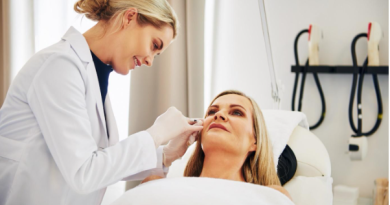Top 3 Benefits of Medicare for Elderly Home Care
The provision of temporary skilled services is the main goal of Medicare’s home health care benefits. There is a significant difference between personal care services that are not medically essential.
Medicare generally does not provide coverage for personal care services like dressing and bathing.
The National Health Expenditure Account estimates that Americans will spend more than $123 billion on home health care in 2020.
Home health care is designed to give people access to medical supplies and services while healing at home.
A comprehensive range of medical and social services are provided at the patient’s home as part of home health care to treat disease or injury.
Intermittent skilled nursing care, skilled therapy services, and care from a home health assistant are all included in Medicare’s home health coverage.
Table of Contents
Medicare And Home Health Care
If the required services are deemed reasonable and essential for the person’s particular sickness or damage, Medicare Parts A and B will pay for them.
To be eligible for home-based care under Medicare, you must be treated by a physician who certifies you are housebound.
Services offered include speech-language pathology, physical therapy, occupational therapy, and skilled nursing care.
When home health care becomes more constant or custodial, Medicare’s benefits are reduced even while paying for part-time or intermittent skilled nursing, occupational and physical therapy, and other required treatments in the patient’s home.
Medicare does not pay for round-the-clock care, meal delivery, or home care services like cleaning, laundry, or assistance with ADLs like dressing, toileting, or bathing.
Medicare includes the following benefits if you are eligible for the home health benefit:
1. Skilled Nursing And Therapy Services
Medicare can provide skilled nursing and therapy coverage for up to 28 hours per week or seven days for no more than eight hours each day.
Injections (including instruction on how to self-inject), tube feedings, catheter changes, monitoring and condition assessment, management and care plan evaluation, and wound care are among the services offered.
You can restore the capacity to do everyday tasks like eating and dressing by using physical and occupational therapy.
Both physical and speech-language therapy can help you restore speech and language abilities and movement and strength in a specific body part.
Professional therapists offer these services or do so under their direction.
2. Home Health Care Services Are Completely Free If You Have Original Medicare Coverage
The opportunity to use telehealth more often may be made possible by changes to the legislation.
Your home health organization must provide you with an Advance Beneficiary Notice of Noncoverage in writing if Medicare does not pay for any home-based services (ABN).
You might be able to appeal Medicare’s decision to deny coverage if you disagree.
You might need certain support devices like a wheelchair or walker while healing at home.
The equipment is frequently available through your home health agency and may be delivered to your door.
For beneficiaries participating in Medicare Advantage plans, costs and benefits could vary. Contact them to learn how your plan offers home health services that Medicare covers.
If you are not attentive, the expense of durable medical equipment may rise fast. Because some agencies may suggest services that Medicare does not cover, be sure to ask the home healthcare agency what services
Medicare will cover what services it will not. Before beginning care, home health organizations must give you a written estimate of the cost of the services.
Before beginning home care, being aware of all these things will help you ensure you get the most out of your plan.
3. Allows Other Private Insurance Providers To Function At The Same Time
Private businesses are permitted to provide health insurance under Medicare Part C, which combines the advantages of Parts A and B.
Many MA plans provide extra benefits like hearing aids, dental care, eye care, and fitness programs.
All eligible Medicare enrollees have access to Part C, and many MA plans also provide these extra benefits. Additionally, plans may include benefits like dental and vision.
Adult daycare and personal care assistance are two long-term home and community-based services that certain Medicare Advantage (MA) plans currently provide.
The out-of-pocket expenses for MA plans are normally lower than those for Original Medicare, but you might need to use a network of physicians.
Most MA plans also include other services, including transportation to doctor’s appointments, eye care, and dental care.
Medicare Coverage Of Home Health Care Duration
Medicare will cover “intermittent” or part-time home health care, which means that services are required less than seven days a week.
Due to the transitory nature of this treatment, a patient’s doctor must recertify their care plan every 60 days if further care becomes necessary.
Medicare will no longer cover home health care if a patient’s demands are greater than those of an assisted living community or skilled nursing facility.
Home health care services are not meant to replace these institutions; rather, they are meant to postpone or avoid placement in them.
The amount of time and how frequently a senior receives care will be determined by Medicare requirements.








